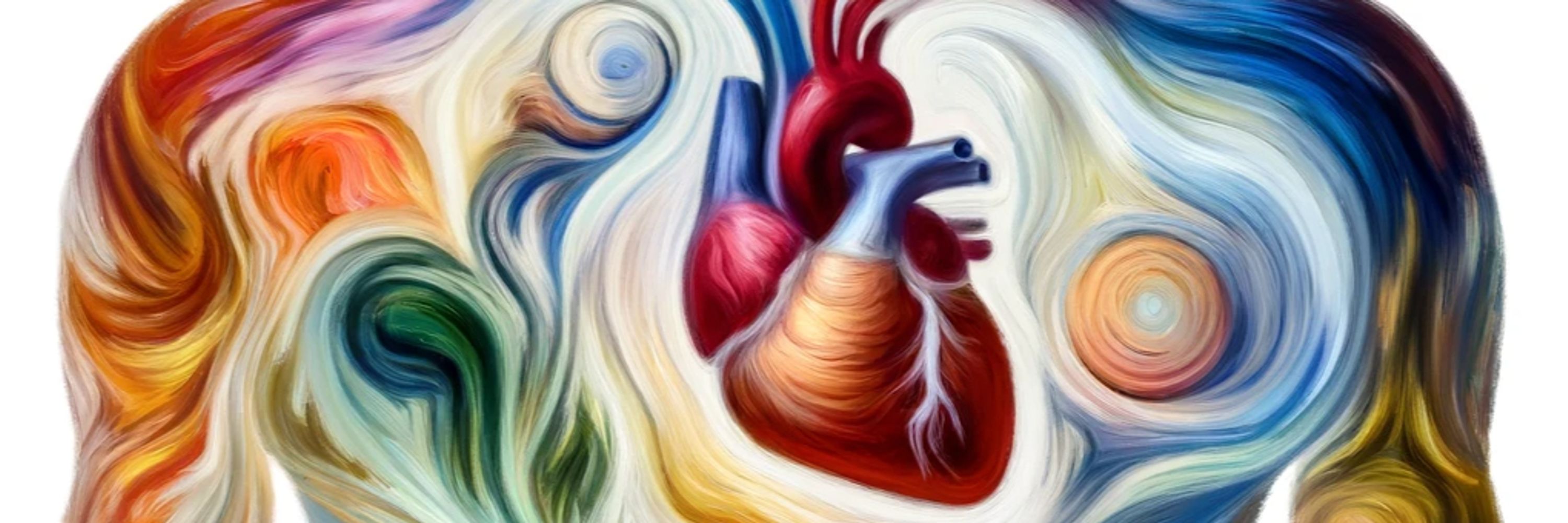
How are we supposed to maintain timely reporting standards when journals don’t?
What shoulld we do? Withdraw? Wait it out? Anyone dealt with this?
How are we supposed to maintain timely reporting standards when journals don’t?
What shoulld we do? Withdraw? Wait it out? Anyone dealt with this?
We hope this review sparks new research into the embodied consequences of stroke—and how restoring internal regulation might support better recovery.
Co-authored with: Salvato, Bassolino, Beccherle, Vianello, Fotopoulou, Bottini & Moro
#Stroke #Interoception #Allostasis #Neuroscience
We hope this review sparks new research into the embodied consequences of stroke—and how restoring internal regulation might support better recovery.
Co-authored with: Salvato, Bassolino, Beccherle, Vianello, Fotopoulou, Bottini & Moro
#Stroke #Interoception #Allostasis #Neuroscience
🧠 Our conclusion:
Stroke disrupts internal bodily regulation in ways that matter—but the field is just scratching the surface.
We call for:
▪️ Standardised interoceptive measures
▪️ Longitudinal studies
▪️ Mechanistic insights
▪️ Rehab strategies targeting interoception
🧠 Our conclusion:
Stroke disrupts internal bodily regulation in ways that matter—but the field is just scratching the surface.
We call for:
▪️ Standardised interoceptive measures
▪️ Longitudinal studies
▪️ Mechanistic insights
▪️ Rehab strategies targeting interoception
📉 Allostatic load—essentially the long-term physiological cost of stress—has not specifically been characterised and studied post-stroke. The one study that did measure it found that higher load predicted worse cognitive outcomes, especially in marginalised populations.
📉 Allostatic load—essentially the long-term physiological cost of stress—has not specifically been characterised and studied post-stroke. The one study that did measure it found that higher load predicted worse cognitive outcomes, especially in marginalised populations.
🧠 Interoceptive changes were often linked to poorer outcomes:
▪️ Lower functional recovery
▪️ Cognitive and emotional challenges
▪️ Disturbed body ownership
Insular and somatosensory lesions were most commonly implicated.
🧠 Interoceptive changes were often linked to poorer outcomes:
▪️ Lower functional recovery
▪️ Cognitive and emotional challenges
▪️ Disturbed body ownership
Insular and somatosensory lesions were most commonly implicated.
What did we find?
Interoceptive deficits post-stroke are common. Disrupted domains include:
✔️ Heartbeat detection
✔️ Breathing awareness
✔️ Temperature and touch perception
✔️ Fatigue and hunger
✔️ Bladder and muscle sensation
What did we find?
Interoceptive deficits post-stroke are common. Disrupted domains include:
✔️ Heartbeat detection
✔️ Breathing awareness
✔️ Temperature and touch perception
✔️ Fatigue and hunger
✔️ Bladder and muscle sensation
🔍 We reviewed 39 studies:
▪️ 38 focused on interoception after stroke
▪️ Only 1 (!) specifically characterised and examined allostatic load.
That gap alone speaks volumes. We need to better understand the body’s complex internal regulation systems in stroke recovery research.
🔍 We reviewed 39 studies:
▪️ 38 focused on interoception after stroke
▪️ Only 1 (!) specifically characterised and examined allostatic load.
That gap alone speaks volumes. We need to better understand the body’s complex internal regulation systems in stroke recovery research.
Why this matters:
Interoception plays a key role in regulating internal bodily states. When the brain is damaged by stroke, this internal sense can be thrown off balance—impacting recovery, cognition, emotion, and quality of life. But how exactly? No one had mapped this—until now.
Why this matters:
Interoception plays a key role in regulating internal bodily states. When the brain is damaged by stroke, this internal sense can be thrown off balance—impacting recovery, cognition, emotion, and quality of life. But how exactly? No one had mapped this—until now.
Thanks to co-authors Rodolfo Leuzzi, Charlotte Dean, Aaron Clarke, Joanna Mash, and Keith Laws 🙏
📝 Read the preprint here:
🔗 osf.io/abep4
#interoception #depression #mentalhealth #OpenScience

Thanks to co-authors Rodolfo Leuzzi, Charlotte Dean, Aaron Clarke, Joanna Mash, and Keith Laws 🙏
📝 Read the preprint here:
🔗 osf.io/abep4
#interoception #depression #mentalhealth #OpenScience
🛠️ Interoceptive-based therapies should focus on regulation, self-trust, and metacognition—not just improving accuracy.
🧪 And future research should carefully choose tools that reflect adaptive vs. maladaptive interoceptive processes.
🛠️ Interoceptive-based therapies should focus on regulation, self-trust, and metacognition—not just improving accuracy.
🧪 And future research should carefully choose tools that reflect adaptive vs. maladaptive interoceptive processes.
🧩 These findings support a multidimensional model of interoception, where not all interoceptive tools are created equal.
🧩 These findings support a multidimensional model of interoception, where not all interoceptive tools are created equal.
And interestingly, not all self-report tools agreed—MAIA showed strong links; others (like BPQ, BRQ) showed positive or mixed associations.
And interestingly, not all self-report tools agreed—MAIA showed strong links; others (like BPQ, BRQ) showed positive or mixed associations.
Regulatory & metacognitive interoceptive processes may be promising targets for intervention.
Regulatory & metacognitive interoceptive processes may be promising targets for intervention.


